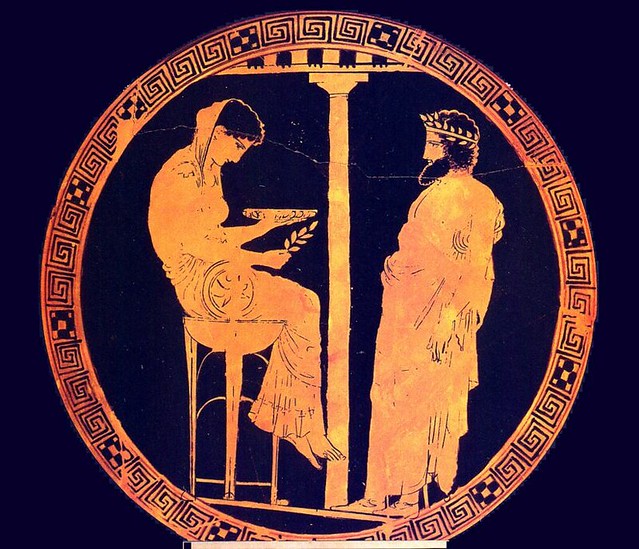“The person of higher virtue is like water, benefiting the ten thousand things without struggle. It rests in the lowest places near the Tao. Therefore: In dwelling, choose modest quarters, in thinking, value stillness, in dealing with others, be kind, in choosing words, be sincere, in leading, be just, in working, be competent, in acting, choose the correct timing. Follow these words and there will be no error.”
Tao Te Ching, Verse 8 (translated by Robert Brooks)
Once again, Japanese culture has captured my heart recently. Firstly, I delved into the latest novel by Haruki Murakami, which I read in German since the English translation won’t be available until November. The English title is set to be The City and Its Uncertain Walls. The second work of art was the movie Perfect Days directed by Wim Wenders. The two have merged in my mind. I could not help but link them with the philosophy of the Tao.
In “Perfect Days,” beautifully portrayed by Koji Yakusho, the protagonist is a Tokyo toilet cleaner with a simple motto: “Now is now.” The director intentionally withholds his backstory, leaving us with only hints of his possible past affluence. Despite his humble job, he approaches it with unwavering dedication and diligence. He’s a creature of habit, following the same routine each day, and he’s not one for many words. Yet, his gentle eyes reveal the depth of his soul. He tends to his plants with meticulous care and faithfully photographs the same tree in a temple park daily, storing the developed photos in labelled boxes. Furthermore, he shuns modern technologies, opting instead for cassettes and paper books. We have a reason to suspect there is enormous depth to this character though the external circumstances of his life are very repetitive. Each “perfect day” of his life unfolds in precisely the same manner.

In my view, it’s precisely this repetition that stands out as the film’s greatest strength. Once the routine of his days is disrupted, the movie loses its allure for me. The other forgettable characters seem to bounce off the main character like bullets off a bulletproof glass; they simply can’t measure up to him.

Murakami’s The City and Its Uncertain Walls is infused with his trademark magic, featuring captivating symbols and ideas such as the relationship with one’s shadow, traversing between our world and the dream realm, and taking a job of the one who reads people’s dreams. In the second part, the protagonist leaves behind a successful career at a publishing house to embrace the simple life as a library director in the countryside. It’s here that Murakami’s signature blend of the mundane and the mystical comes to fruition. These everyday moments of work and leisure – cooking meals, reading books, doing laundry, sitting on the balcony, and taking walks – are among my favourite aspects of all Murakami’s novels and connect his new work with Perfect Days.
Both the movie and the book prompted me to contemplate the mysteries of the left and right hemispheres and their differing perceptions of the world. I’m considering writing a more extensive post exploring these themes. While many criticized Perfect Days for its monotony and a seemingly tedious plot, what may appear as mundane and repetitive to the left hemisphere is perceived as fresh and unique by the right hemisphere, which is always attuned to the present moment and the vibrancy of life. The repetition of the right hemisphere resembles a ritual and is never mindlessly mechanical. In our culture, which is predominantly influenced by the left hemisphere, we often lack patience for monotony. The left brain craves continual stimulation and struggles with ambiguity, as it insists on clear-cut answers. As Iain McGilchrist says in his book The Master and His Emissary: The Divided Brain and the Making of the Western World,
“The world of the left hemisphere, dependent on denotative language and abstraction, yields clarity and power to manipulate things that are known, fixed, static, isolated, decontextualised, explicit, disembodied, general in nature, but ultimately lifeless. The right hemisphere, by contrast, yields a world of individual, changing, evolving, interconnected, implicit, incarnate, living beings within the context of the lived world, but in the nature of things never fully graspable, always imperfectly known – and to this world it exists in a relationship of care.”
Both the movie and the book explore the worlds hidden in the shadows. They do not answer any questions unequivocally, but I am not bothered by this.

support my blog
If you enjoy my writing, please consider donating to support my work. Thank you very much in advance.
$1.00












I love that verse 8 you noted first time I have read that and the movies you mentioned I will look into. I am learning to be ok with the beauty of the mundane.
LikeLiked by 1 person
Thank you. I was looking for some soothing energies and both the book and the movie had plenty of it.
LikeLike